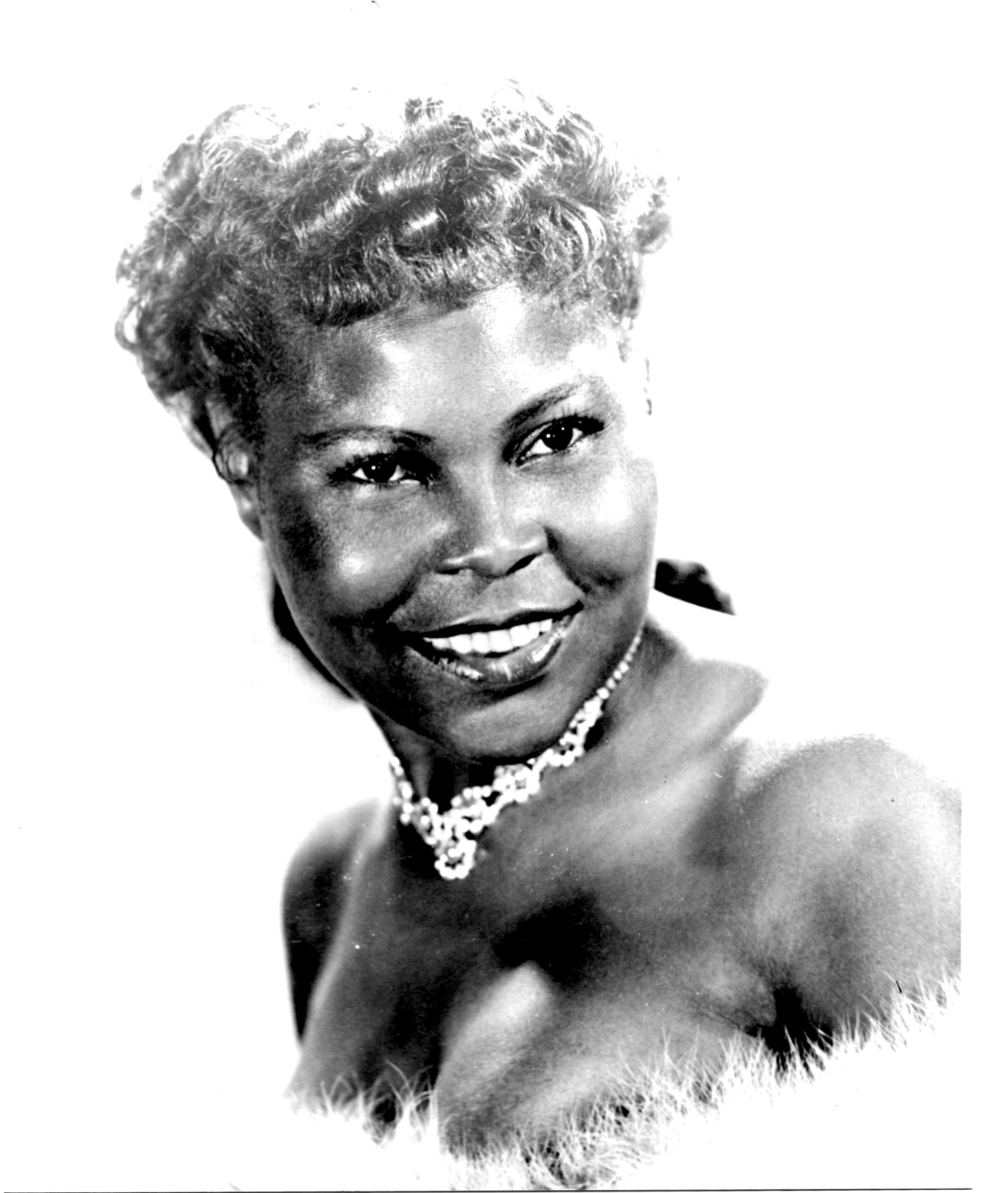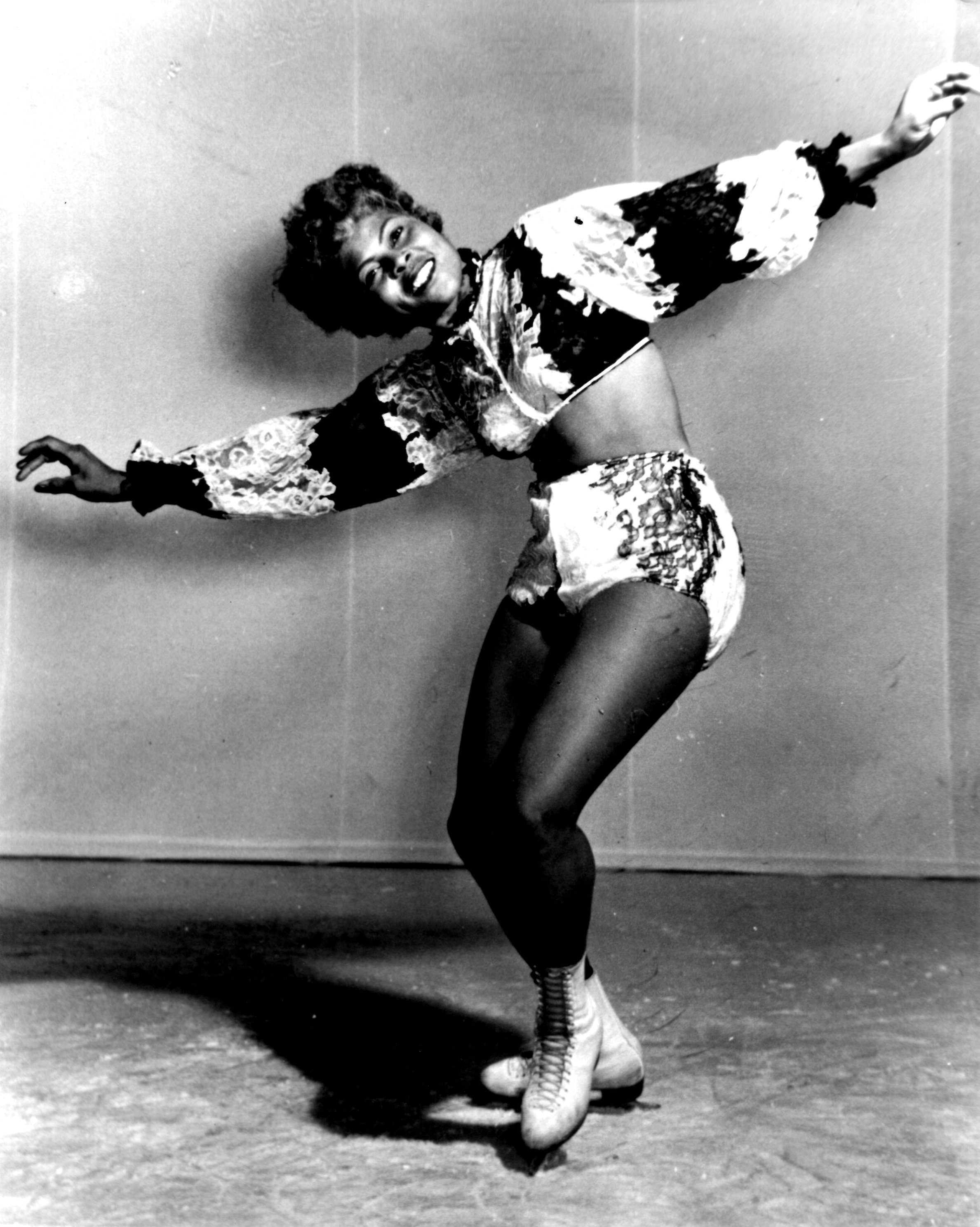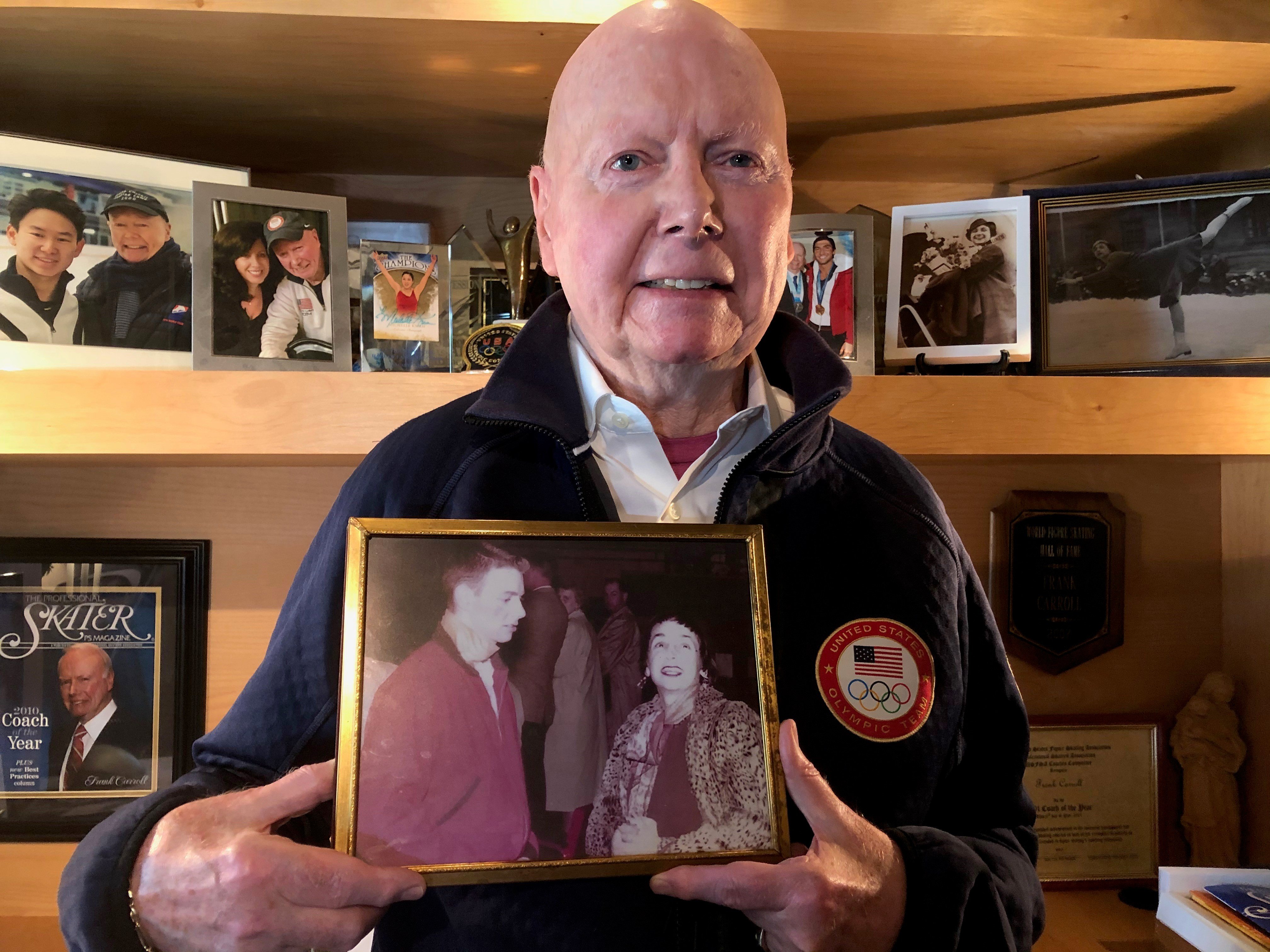Above: Olympic coach Frank Carroll holds a treasured photo of him with his mentor, Maribel Vinson Owen.
Editors Note: In the February issue of SKATING magazine, former students of Mabel Fairbanks remember their beloved coach with first-hand accounts of her talent, kindness, friendship and passion. Fairbanks, who was inducted into the U.S. Figure Skating Hall of Fame in 1997, broke down racial barriers and created opportunities for her pupils of all races and diverse backgrounds. Maribel Vinson Owen, a hall of fame athlete and coach who mentored such legends as Frank Carroll, instructed Fairbanks behind the scenes, encouraging her to become a show performer when racism closed the doors on her competitive aspirations. Vinson Owen would go on to share stories with Carroll about Fairbanks and the racism of the times.
By Amy Rosewater
Frank Carroll learned a lot about figure skating from his beloved coach and mentor, Maribel Vinson Owen. A nine-time U.S. champion, an Olympic medalist and two-time World medalist, Vinson Owen certainly knew everything from tracing figure eights to winning over the judges.
But it’s what she taught Carroll off the ice that truly made an impact on him. Vinson Owen was a renegade, paving trails as one of the first women in sports writing and one of the first people to help integrate the sport of figure skating.
“Maribel would talk to me about [Adolf] Hitler, and how he would talk about Jews and gays and Polish people, and she would talk about racism in our country,” said Carroll, who was born in 1938, just as Hitler was coming to power in Germany. “And she would tell me about Mabel Fairbanks.”
Vinson Owen was one of the only skating coaches who would provide lessons to Fairbanks, a Black and Indigenous athlete. At the time, the top rinks in the country were not open to Black skaters, nor were the top coaches. But Vinson Owen would let Fairbanks enter rinks through the back door and sneak in private lessons free of charge.
“She couldn’t do it out in the open,” Carroll said. “It’s unbelievable that this could’ve occurred, but this was the 1930s.”

Years later, Carroll and Fairbanks would cross paths in California. One week, Carroll, Fairbanks and Richard Garrett, a former Ice Capades star from Canada, trained together in Van Nuys, California.
“I had just been in Ice Follies and was feeling pretty hotsy totsy about myself,” Carroll said. “And then I saw Mabel, and she was so acrobatic, doing butterflies and I was just very impressed.”
Fairbanks wasn’t like many of the skaters Carroll had come across in his career. She was orphaned at the age of 8, purchased her first pair of skates for $1 at a pawn shop and had to persuade an ice rink manager just to skate on public sessions.
She didn’t have the advantage of being able to spend years at the top facilities with the best guidance, but she made up for what she lacked with her passion and persistence. She would skate wherever she could, performing in what were called “tank rinks” in hotels. Tank rinks were temporary, small-sized rinks with water supplied by water tanks.
According to Carroll, Fairbanks even had a small ice rink — “no bigger than 5 feet by 5 feet,” he said — in her bedroom.
“She would get up in the middle of the night and skate,” Carroll said.
Although Fairbanks was not permitted to compete in national competitions, she went on to tour internationally and became a figure skating coach in California. She is known for developing the skating careers of many talented Black skaters — Tai Babilonia, Atoy Wilson and Bobby Beauchamp, among them. Debi Thomas and Tiffany Chin, skaters who both won U.S. titles, trace their skating roots to Fairbanks.
Fairbanks is credited for having paired Babilonia with Randy Gardner. Babilonia and Gardner went on to win five U.S. pairs titles and the 1979 World title. Wilson was the first Black skater to compete at the U.S. Championships in 1965, and in 1966, he claimed the U.S. men’s novice title. Beauchamp had a solid career, claiming the World Junior silver medal and finishing as high as fourth at the U.S. Championships.

Fairbanks worked with Beauchamp and another Black skater named Leslie Robinson when they were young skaters and then sent them Carroll’s way for more advanced technical training.
“When her skaters would reach a certain level, she would push them on,” Carroll said. “And that was very admirable of her to do. Tai and Randy went to [coach] John Nicks. I went to a number of international competitions with Bobby Beauchamp.
“But her students were very, very loyal to her and respectful of her, and they just thought she was a wonderful human being. They would always go to her house every Sunday. She was their coach, but she was also their best friend.”
In 1997, Fairbanks was inducted into the U.S. Figure Skating Hall of Fame, and over the years, skaters have honored her legacy through skating shows. These were great honors, but one must wonder what she might have accomplished had doors not been closed to her decades ago.
“I always talk about passion when I talk about figure skating,” Carroll said. “Talent doesn’t cut it. Money doesn’t cut it. It’s passion. Through hell or high water, this woman was going to become a star.”
The impact of Fairbanks’ skating is being felt today as more skaters from various backgrounds have been able not only to compete but to succeed. Nowadays, her pupils are helping to continue her legacy. Babilonia and Wilson are working on a TV movie about their coach’s life.
As for Carroll, whose career has been highlighted by a who’s who of skating, having guided Michelle Kwan into a World champion and Evan Lysacek into an Olympic gold medalist, he recognizes the impact of a much lesser-known skater — Fairbanks — on his own life and career.
When Carroll was honored by the Ice Theatre of New York’s Lifetime Achievement Award in 2019, he gave pause to Vinson Owen and how she treated people who had faced discrimination. It was clear that Vinson Owen had taught Carroll much more than figure eights.


